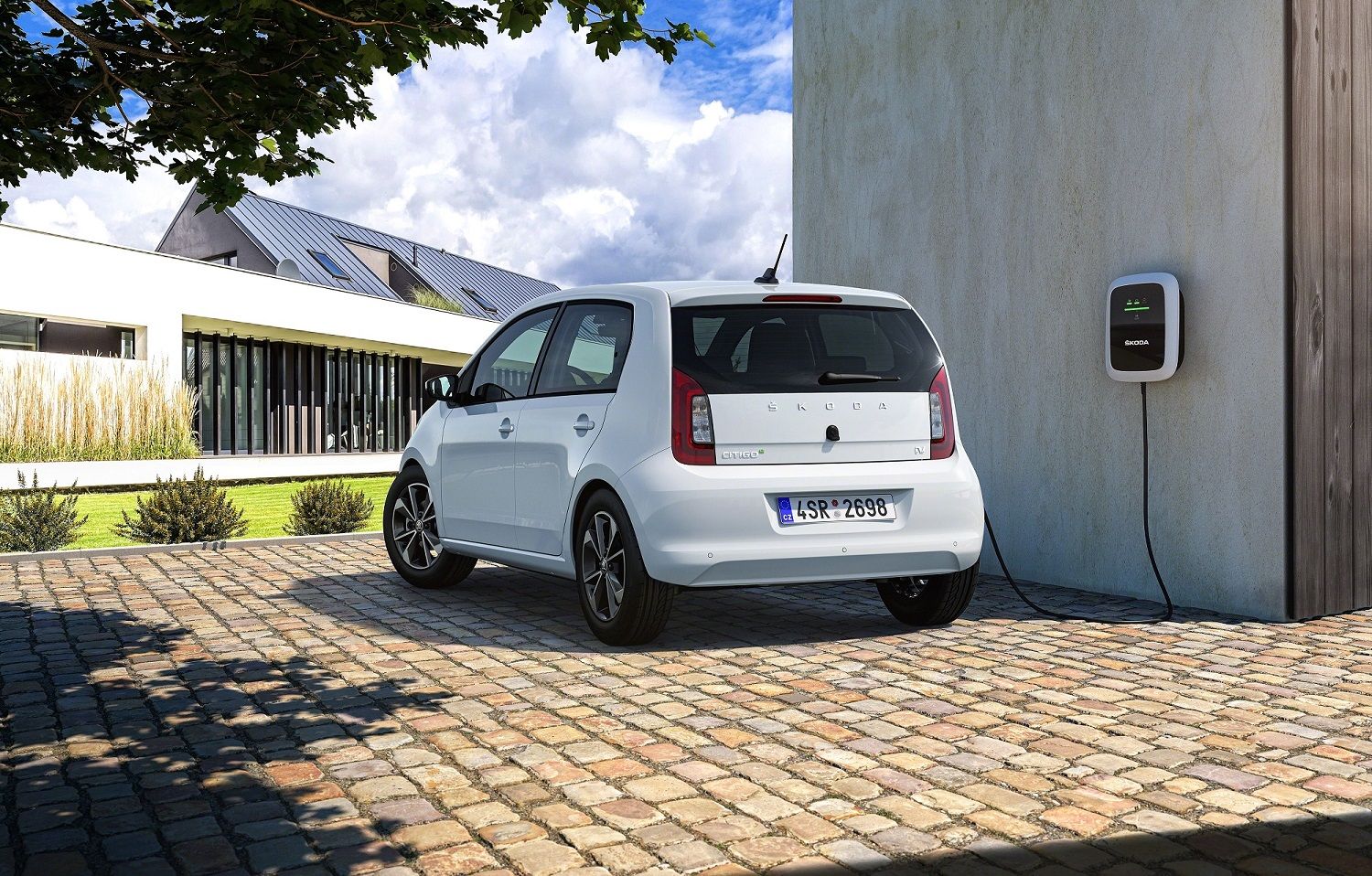How much does it cost to have a charging point installed?
An electric vehicle charging station, a type of Electric Vehicle Supply Equipment (EVSE), comes in both portable plug-in styles and direct wire units. They’re also available in three levels.

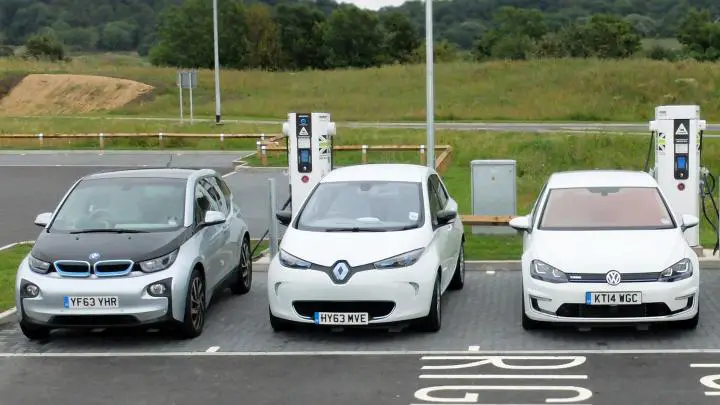
Electric cars use electricity instead of gas,it can take 30 minutes to 30 hours to charge depending on the type of charger you are using. Because these vehicles don't rely on traditional fuels, public charging areas aren't widely available everywhere not yet. For now, you’ll want to hire an electrician to install one in your house for quicker charging so that you don’t need to rely on public stations.
An electric vehicle charging station, a type of Electric Vehicle Supply Equipment (EVSE), comes in both portable plug-in styles and direct wire units. They’re also available in three levels. The first offers a cord that plugs into a 120-volt standard 20-amp circuit and generally comes with your car. The second needs a 240-volt on a 40-amp to 100-amp circuit but reduces charging time by almost half. You won’t find many level 3 stations, which charge 3 times as fast as a level 2, in most homes. Tesla vehicles use a Level 3 and can charge in about an hour.
For residential installations, you’ll choose between a Level 1 or 2 charger type. Commercial properties can choose between level 1, 2 or 3. A level 1 uses a standard household 120V circuit, common in most garages. A Level 2 unit uses a 240V circuit, the same that an electric stove or dryer uses. These aren’t commonly available in a garage. While they charge much faster than a Level 1, you’ll probably need to add a circuit. Circuit installation costs $700 on average.
The national average for installing a standard electric vehicle charging station ranges between $455 and $1,044, while the median cost is $733 each. The price of the stations alone run $400 to $2,000, depending on whether you choose Level 1 or a Level 2. Hard-wiring a Level 2 in or installing a circuit for plug-in types adds another $500 to $1,500.
For example in UK , if you have access to off-street parking of approximately 60%, the charging points are relatively simple and cost from around £800. You can apply for a grant to help pay for it from the Office for Low Emission Vehicles (OLEV). Its Electric Vehicle Home-charge Scheme provides grant funding to cover up to 75% of the cost of having a charging point installed, up to a maximum value of £350. If you’re eligible for the full £350, that would leave you with around £450 to pay yourself.
Once you have a charging point of your own, you can top up your car’s battery in a matter of hours, or overnight using off-peak electricity to bring your energy costs down. To make sure that running an electric vehicle is as environmentally friendly as it can be, switch to a green energy supplier such as Good Energy or Ecotricity.
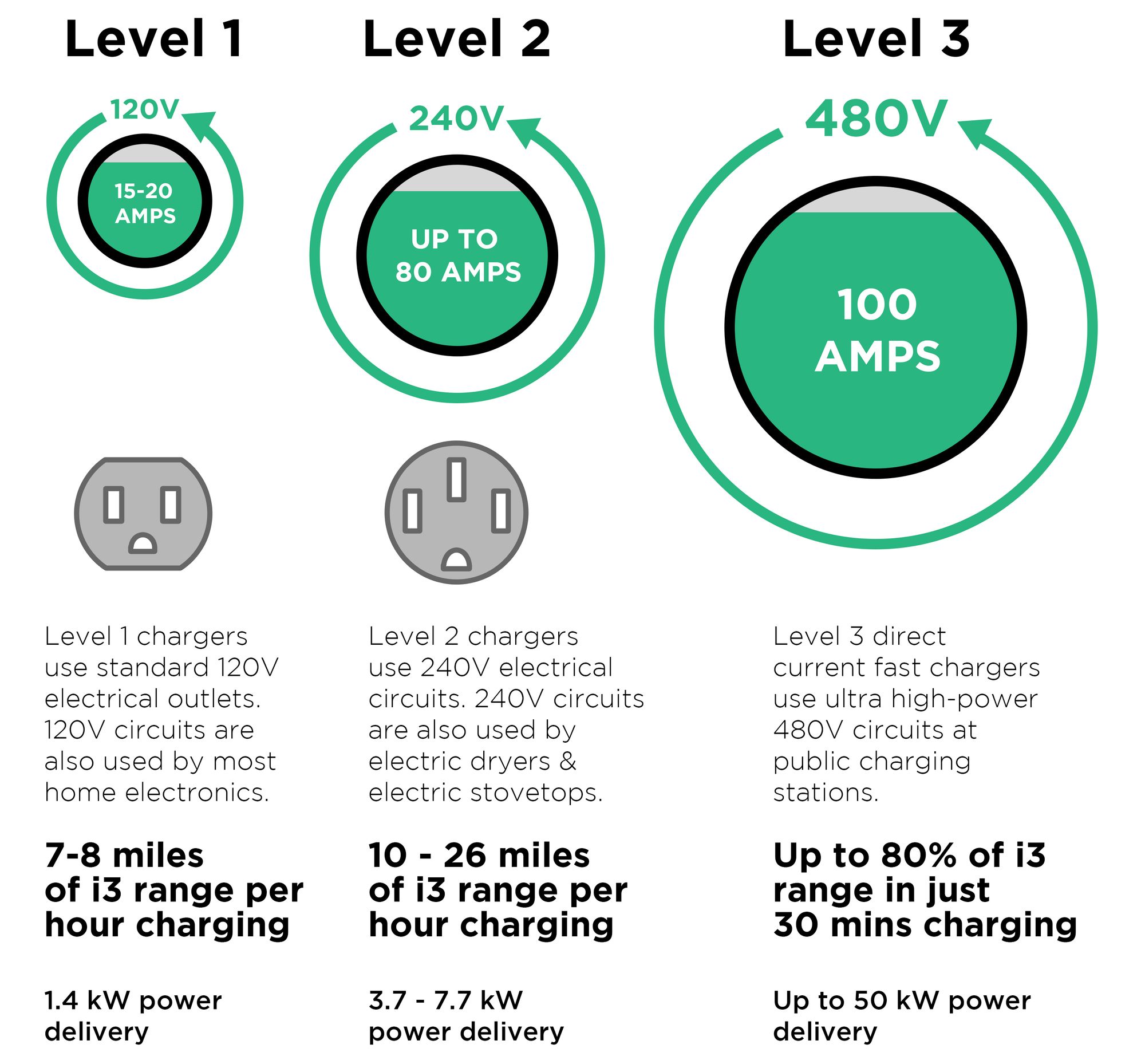
Level 1- It uses a standard 120-volt circuit that you’ll find in any garage. Your car comes with a Level 1 cable, which plugs in to a standard wall socket, much like plugging your phone in to charge. While cheap, it’ll take far longer to charge your car than a Level 2.
Station- $300 - $600
Parts & Labor -$0 - $1,700
Charging Time- 8 - 12 hours, depending on car battery
Level 2- Level 2 charging points use 240V circuits, cost about $500 to $2,200 for just the unit. It comes in both direct wire and portable plug in designs. It’ll charge your car up to 10 times as fast as a Level 1 EVSE. They’re the most common type to find in public parking lots. Level 2 charger installation costs vary proportionally to amperage and the cable's length.
Station- $500 - $2,200
Parts & Labor- $1,200 - $3,300
Charging Time-4 - 6 hours
Level 3- It is mostly used for commercial purposes only, and cost more than level 1 and level 2. They work by overriding the cars onboard charger and supplying power directly to the battery. Level 3s were designed for commercial use and aren’t available for home installations.
Station- $20,000 - $50,000
Parts & Labor- $50,000+
Charging Time- 20 - 30 minutes for 80%
Tesla chargers- Tesla has its own chargers, if you want a fast charger for your Tesla EV you can get a home wall connector for about $500.Each one handles 208 to 240-volt power supplies on a 60 to 90-amp circuit that requires a trained electrician to install. Electricians typically charge $65 to $85 per hour, meaning the total cost of installing a Tesla wall connector ranges between $630 and $1,100 for a basic unit.
Tesla's, including the Model S and Model X series, include at least Level 1 adapters and wall connections but typically also comes a more powerful 240-volt connection, and one cord for public stations.
Tesla owners get to use the commercial standard, the Tesla Supercharger for free. It uses a 480-volt system to quickly power vehicles within 1 hour while a 20-minute session gets you about an 80% charge. You can’t install this at home because you’ll need industrial grade electrical capacity, meaning your home lacks the necessary power to use one.
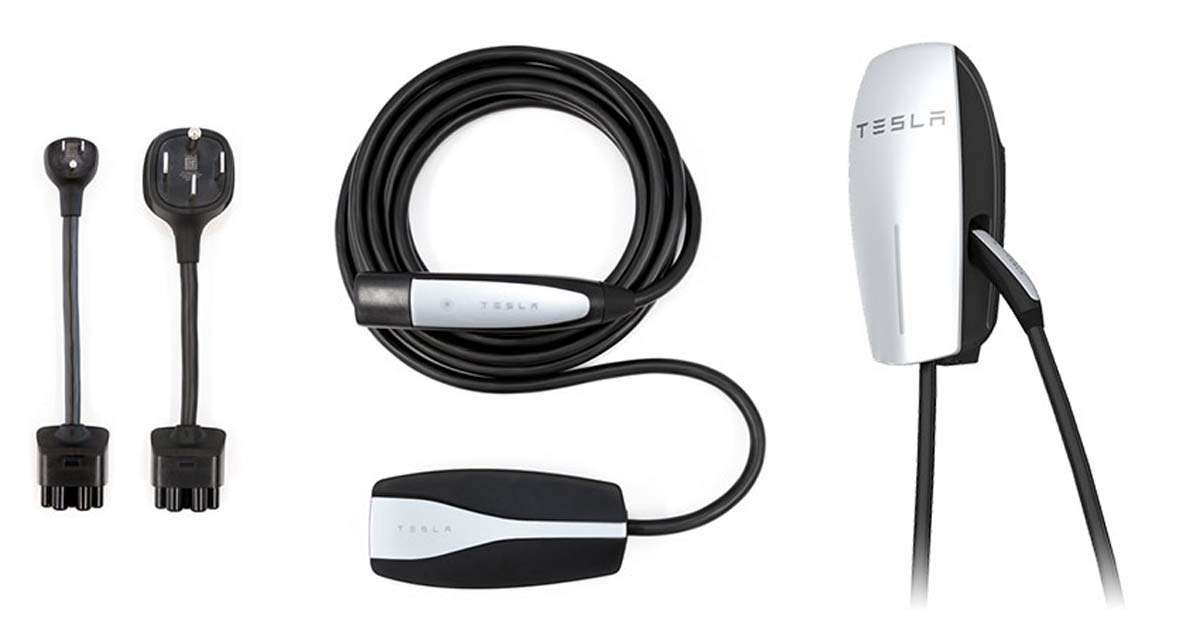
Home EV charging station- EV charging stations costs vary based on labor, wiring, and additional features requested by the homeowner. Most of your cost comes from labor and the units.
Labor Charges for Electricians-$65 - $85 per hour
Wi-Fi- $100 - $400
Cost to Install Wiring- $6 - $8 per foot
100-Amp Wall Connection- $150 - $350
Permits- Both business owners and homeowners need permits for their businesses, however the cost of permit depends on the location of your business. Always check with your local permitting office before starting work. Here is a breakdown of some requirements and the prices:
- Application: $40-$60
- Electrical Permit: $80-$100
- Additional Handling Charges: $20-$40
EV charging cost by brands- We have several charging brands with their advantages and disadvantages.
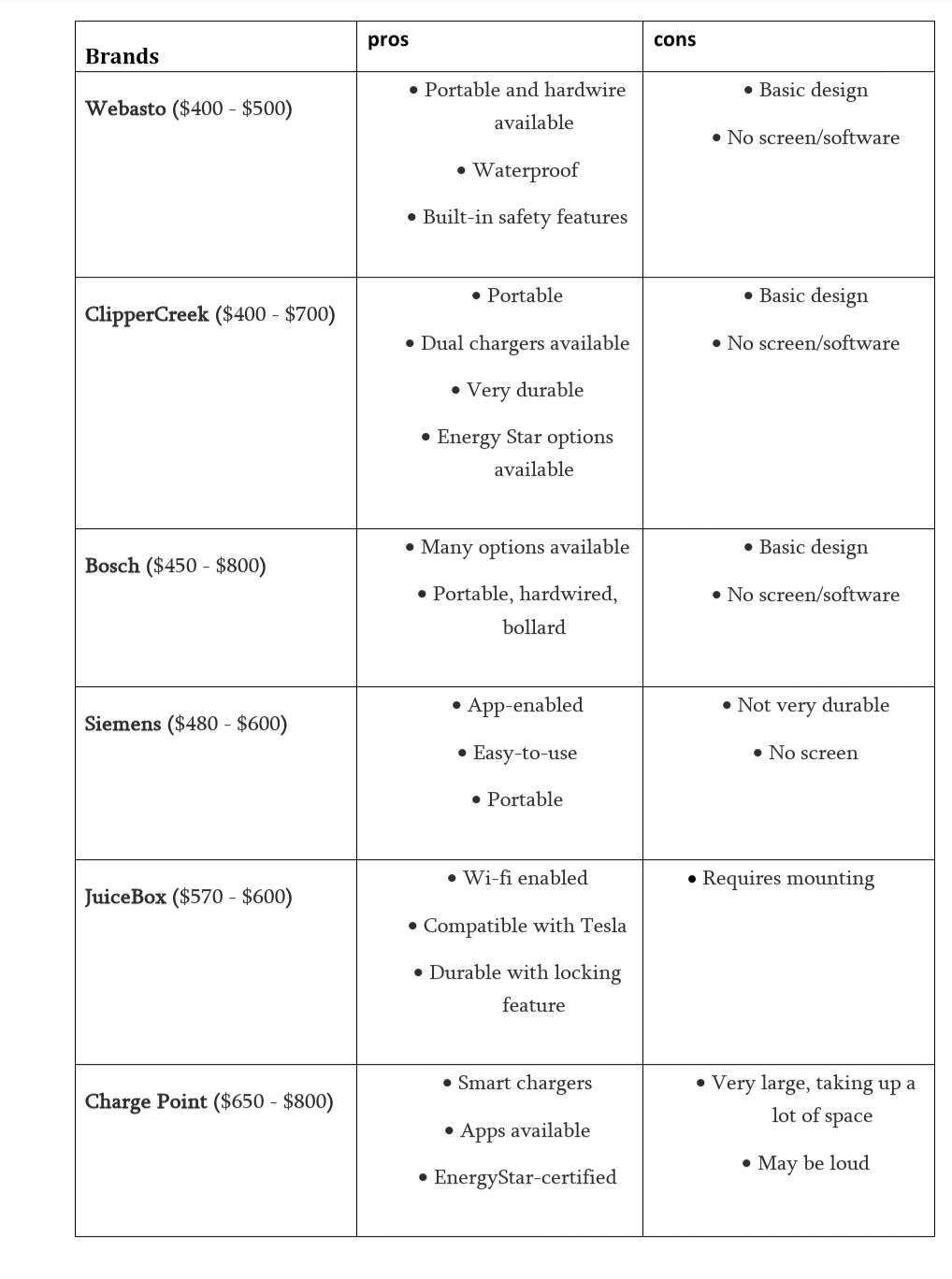
Garage cost- Charging stations come rated for both indoor and outdoor use. If you don’t have a garage, get a unit with a NEMA rating of at least 3, but most manufacturers rate them to a 4. Most garages don’t come with a 240 volt 20 to 100-amp circuit. You will be required to install one that costs at $500 to $1,500.
Additional features- The breaker box used by the system can also increase or lower the total price. Most of these systems require a 240-volt circuit, and if the home needs a new breaker capable of transporting this level of energy, the price will rise. The wires that run from the breaker box to the system can also raise the price, especially if the system needs new or longer wires.
Most people will also need to look at the type of system they use, and the added features included in the product. A Wi-Fi-enabled system will usually cost more than another without Wi-Fi. Some systems use a single cord that users can plug into any outlet and then into their vehicles, but others are more complicated and require a breaker box and a permanent electric connection.
